Notion has become a popular productivity tool for freelancers due to its versatility and customization options. With the right templates, you can streamline your workflow, manage projects efficiently, and stay organized. In this article, we'll explore some essential Notion templates for freelancers, covering areas such as project management, client management, time tracking, and personal branding.
Essential Notion Templates for Freelancers
Project Management Templates
Freelancers juggle multiple projects simultaneously, making effective project management crucial. Notion templates can help you visualize tasks, track progress, and ensure timely delivery.
1. Kanban Board:
Visualize your workflow with columns for tasks, in progress, and completed.
Use color-coded labels to categorize tasks based on priority, client, or project.
Add due dates, assign team members, and track progress.
2. Project Brief Template:
Gather essential project details, including client information, project goals, deliverables, timeline, and budget.
Use this template to ensure clear communication and expectations with clients.
3. Daily/Weekly Task List:
Break down larger projects into smaller, actionable tasks.
Prioritize tasks based on importance and urgency.
Track your progress and adjust your schedule as needed.
4. Client Meeting Notes:
Record key points, decisions, and action items from client meetings.
Share notes with team members and clients for reference.
Client Management Templates
Building strong relationships with clients is essential for freelance success. Notion templates can streamline client communication, track project details, and generate professional proposals.
1. Client Database:
Store contact information, project history, and communication preferences for all clients.
Use this database to easily track client interactions and identify potential opportunities.
2. Proposal Template:
Create professional proposals that showcase your skills and experience.
Customize the template to fit different project requirements and client preferences.
3. Contract Template:
Use a standard contract template to protect your interests and establish clear terms and conditions.
Consult with a legal professional to ensure the contract is legally binding.
4. Invoice Template:
Generate professional invoices that include project details, hourly rates, and payment terms.
Use a tracking system to ensure timely payments.
Time Tracking Templates
Accurately tracking your time is vital for billing clients and managing your workload. Notion templates can help you record your hours, calculate your hourly rate, and identify time-consuming tasks.
1. Daily Time Log:
Record the time spent on each project and task.
Use this data to calculate your hourly rate, track productivity, and identify areas for improvement.
2. Timesheet Template:
Summarize your weekly or monthly time spent on different projects.
This template can be used for billing purposes and to track your workload.
3. Billable Hours Tracker:
Monitor your billable hours and track your revenue.
Use this template to ensure you're charging a fair rate for your services.
Personal Branding Templates
Establishing a strong personal brand is essential for attracting new clients and differentiating yourself from competitors. Notion templates can help you create a professional media kit, develop a pitch deck, and manage your online presence.
1. Media Kit:
Create a professional media kit that showcases your work, experience, and contact information.
Use this kit to promote your freelance business and attract new clients.
2. Pitch Deck:
Develop a compelling pitch deck to present your freelance services to potential clients.
Highlight your unique selling points and demonstrate your value proposition.
3. Blog Post Template:
Create informative and engaging blog posts to share your expertise and attract new clients.
Use this template to structure your content and optimize it for search engines.
Additional Tips for Using Notion Templates
In addition to the templates discussed above, several other tips can help you get the most out of Notion for your freelance business. By following these tips, you can further customize your workspace, improve your productivity, and streamline your workflow.
Customize Templates:
Adapt the templates to fit your specific needs and preferences.
Don't be afraid to experiment with the templates and modify them to suit your unique workflow.
For example, you might add additional columns to your Kanban board or customize the fields in your client database.
Use Databases:
Leverage Notion's database functionality to store and organize information efficiently.
Notion's databases are incredibly versatile and can be used to store a wide range of information, from project details to client contact information.
By creating databases, you can easily search, filter, and sort data, making it easier to find what you need when you need it.
Integrations:
Connect Notion with other tools like Google Calendar, Asana, or Zapier to streamline your workflow.
Notion integrates seamlessly with a variety of other tools, allowing you to streamline your workflow and avoid switching between multiple applications.
For example, you can connect Notion to Google Calendar to schedule meetings and track deadlines, or integrate with Asana to manage your tasks and projects.
Backups:
Choosing the Right Notion Templates for Freelancers
When selecting Notion templates, consider the following factors:
1. Your Specific Needs
What areas of your freelance business are causing you the most stress or inefficiency? Templates can help address specific challenges, such as managing multiple projects, tracking client interactions, or improving your time management.
Project Management: If you manage multiple projects simultaneously, templates like Kanban boards or project brief templates can be invaluable.
Client Management: If you work with many clients, templates for client databases, proposals, and contracts can streamline your workflow.
Time Tracking: If accurate time tracking is essential for your business, templates for daily time logs, timesheets, and billable hours can help.
Personal Branding: If you want to establish a strong online presence, templates for media kits, pitch decks, and blog posts can be beneficial.
2. Your Workflow and Preferences
Do you prefer a visual or text-based approach to organizing information? Are you a minimalist or someone who needs a lot of detail? Choose templates that align with your personal preferences and make it easier for you to stay organized.
Visual Learner: If you prefer visual representations, templates with Kanban boards or mind maps can be helpful.
Detailed-Oriented: If you need to track specific details, templates with numerous fields or sections might be suitable.
Minimalist: If you prefer a clean and uncluttered workspace, templates with a minimalist design might be more appealing.
3. Customization Options
The best templates are those that can be easily adapted to your unique needs.
Flexibility: Choose templates that allow you to easily customize fields, add or remove sections, and change the layout to fit your specific needs.
Integration Capabilities: Consider templates that integrate with other tools you use, such as Google Calendar, Asana, or Zapier.
4. Community and Support
Find templates by using a good indicator of their quality and usefulness. Consider templates with active communities or forums where you can get help and advice.
Template Popularity: Look for templates that have been downloaded and used by other freelancers.
Community Support: This can be especially valuable if you encounter any issues or need assistance customizing the template.
4. Trial and Error
Remember that your template choices are not set in stone. As your freelance business grows and evolves, you may need to revisit and refine your template setup
Experimentation: Don't be afraid to try different templates and see what works best for you. You may need to combine multiple templates or create your own custom templates.
Iterative process: Remember that your needs and preferences may change over time. Be prepared to adjust your template choices and customization as your business grows and evolves.
Free Notion Templates for Freelancers
Here are some of the most popular and useful free Notion templates for freelancers, covering a variety of essential areas:
Project Management
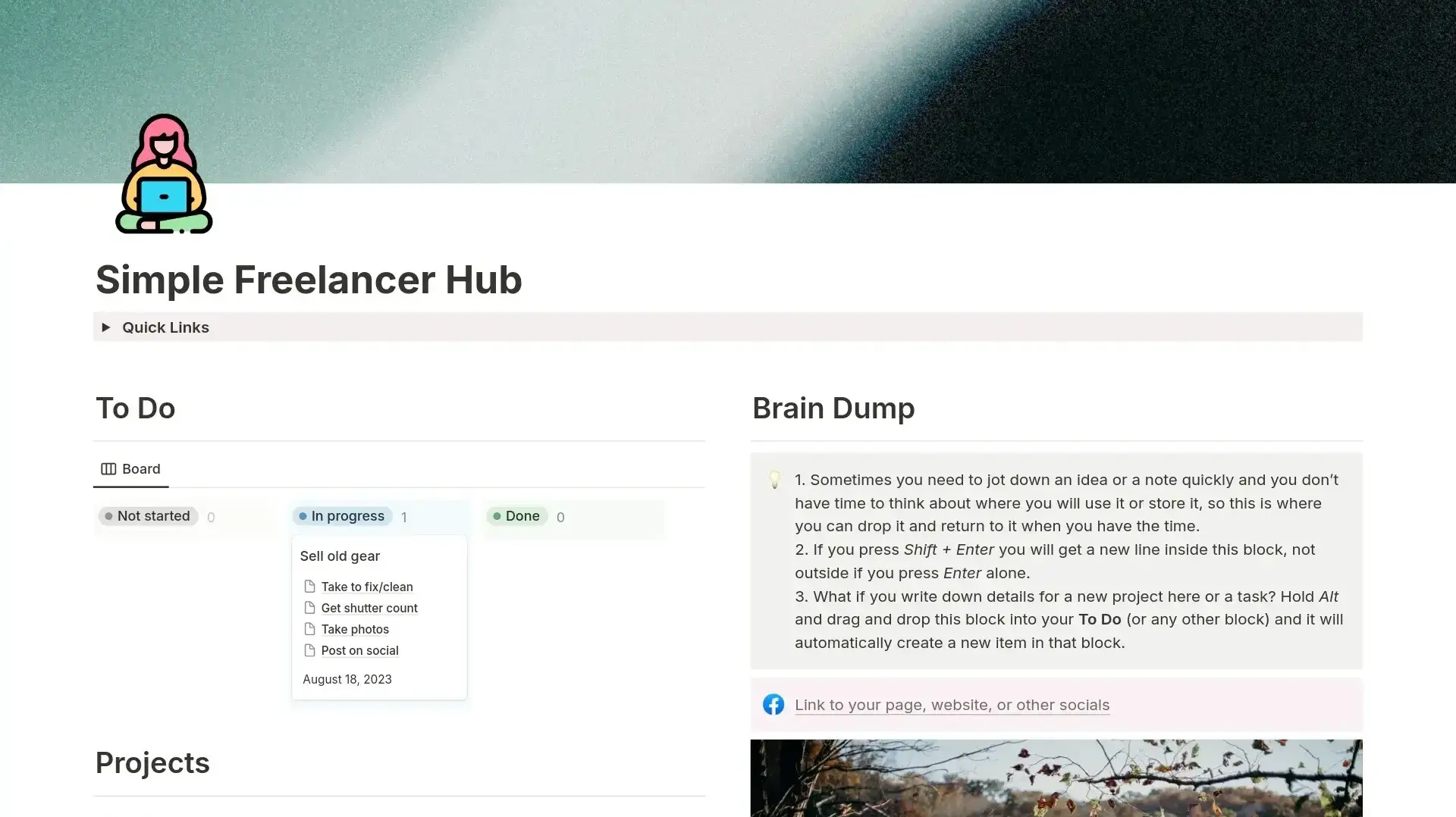
Have your notes and resources at hand. Great for freelancers - Photographers, Designers, and Creators.
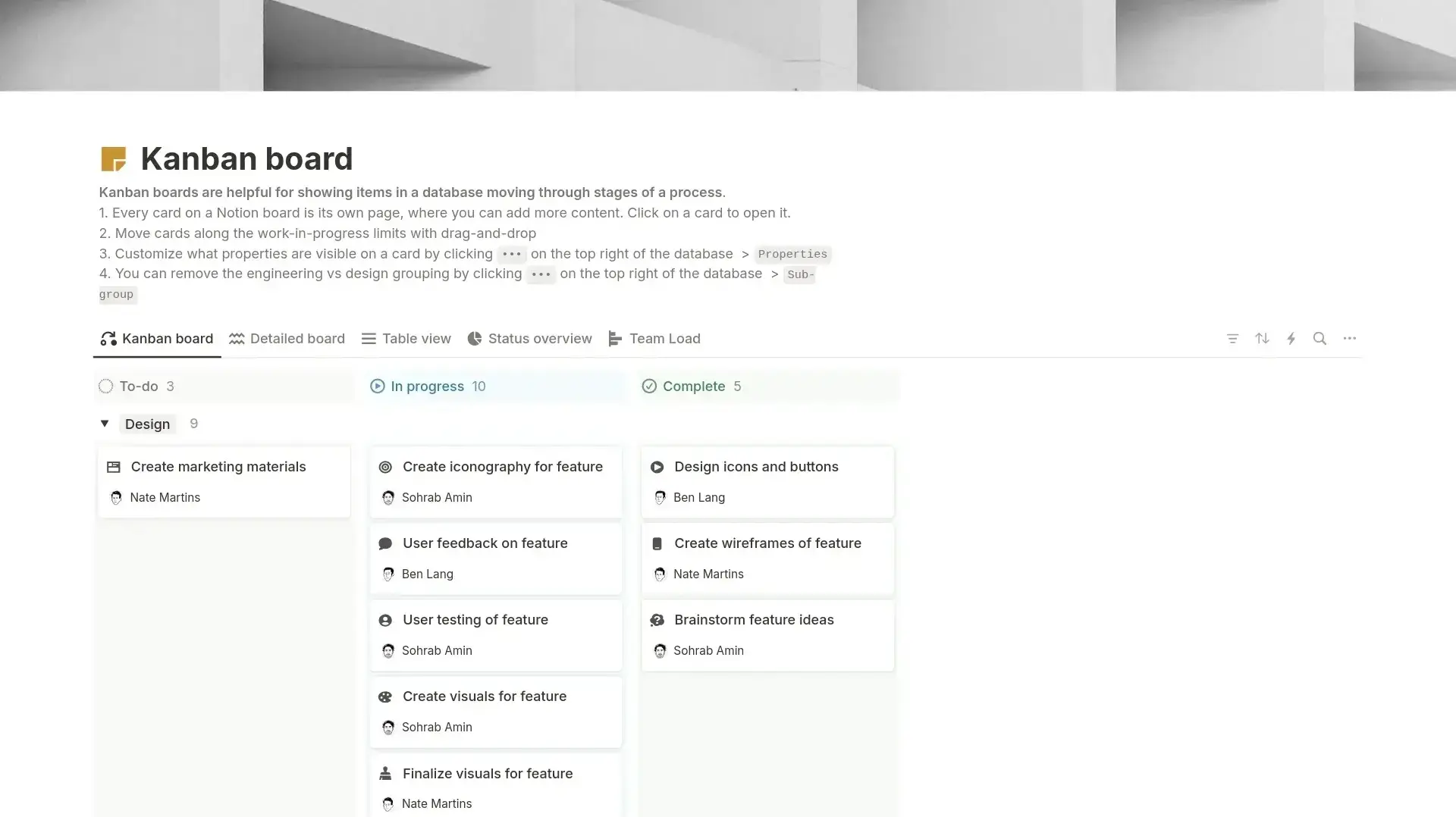
Kanban boards are ideal for organizing large projects with many components to keep tracking the progress of all projects, tasks, and team members
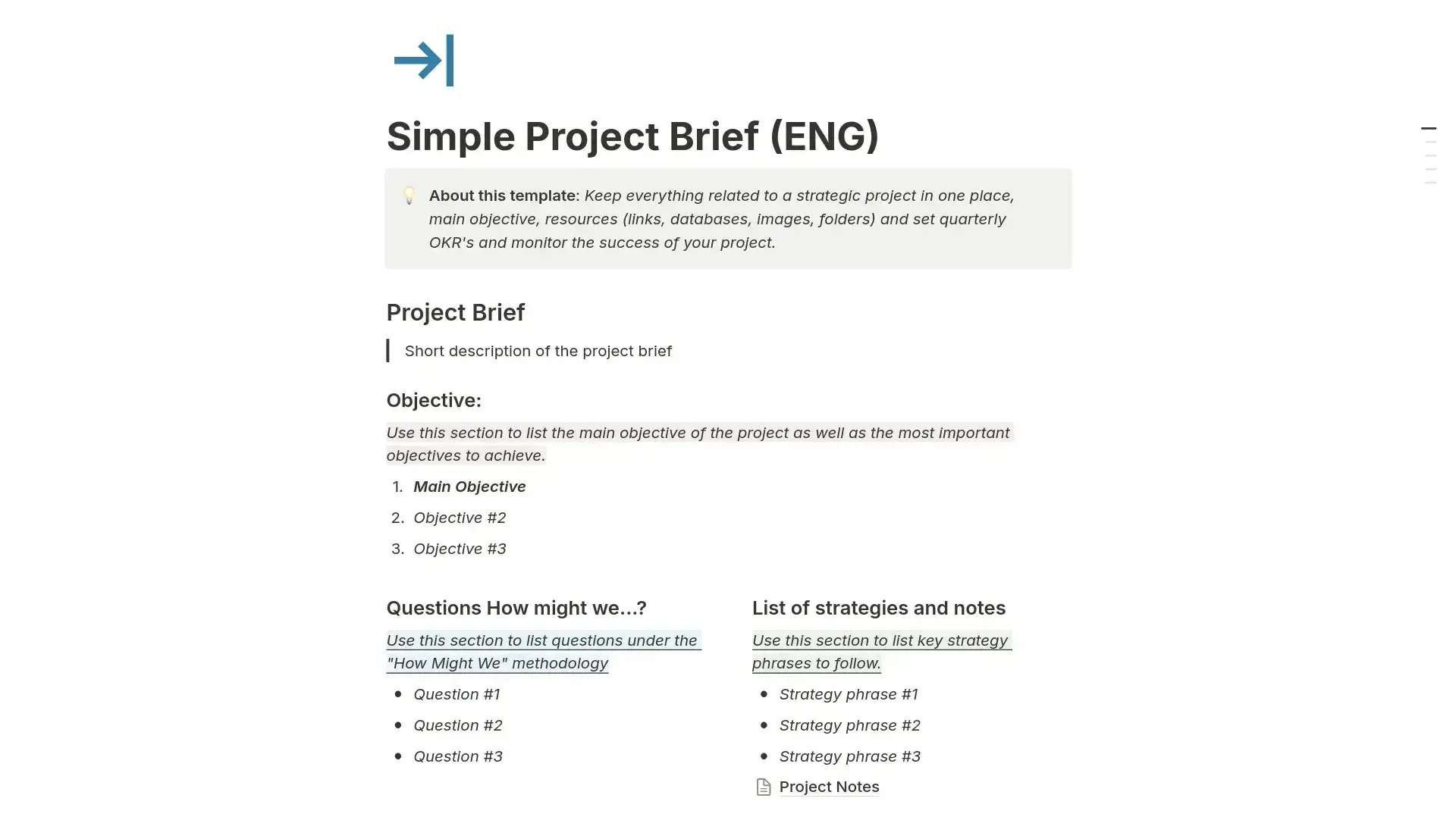
A structured template for gathering and organizing project details.
Client Management
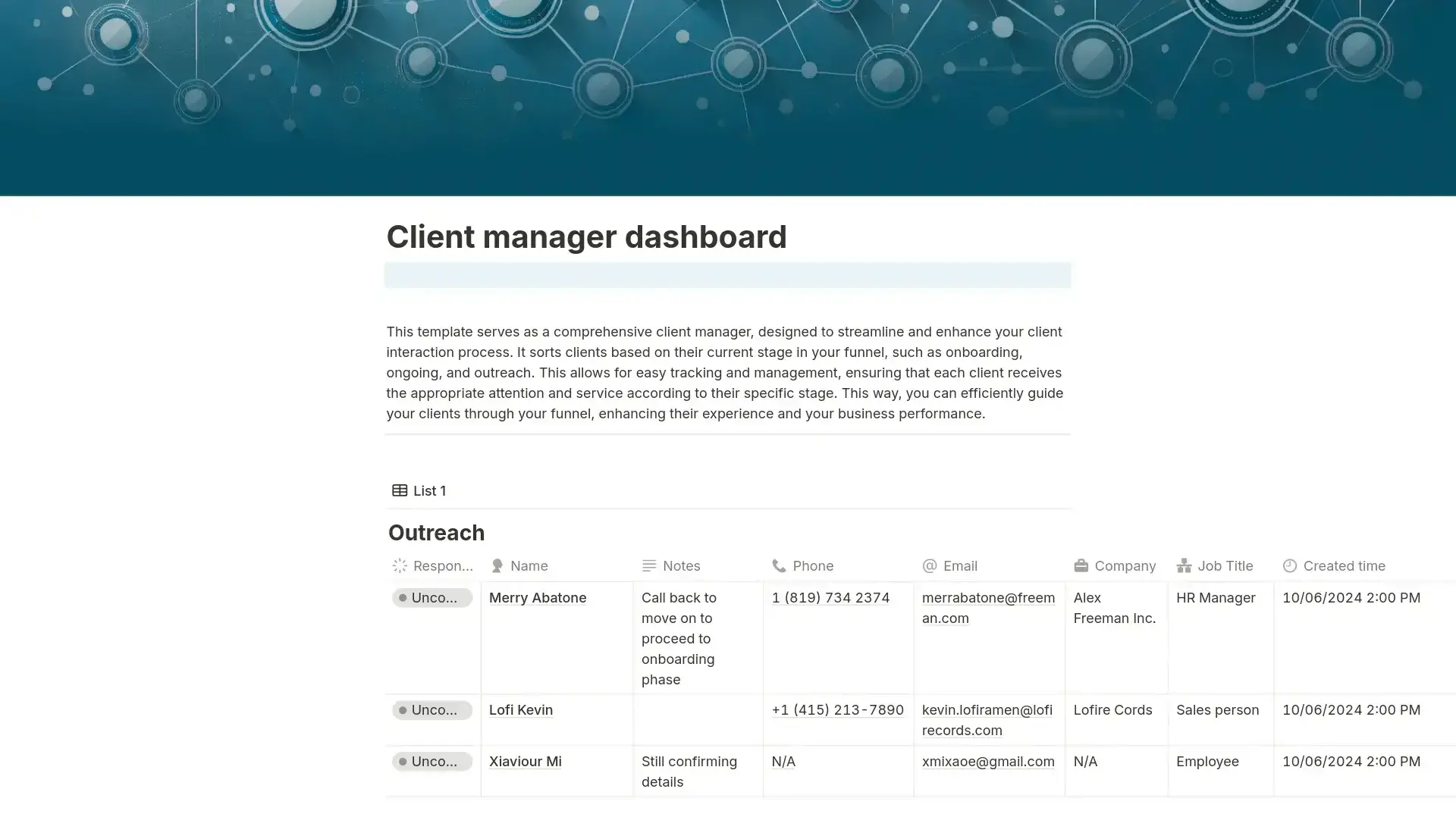
It is designed to help you stay organized and centralized database to manage client information and project history.
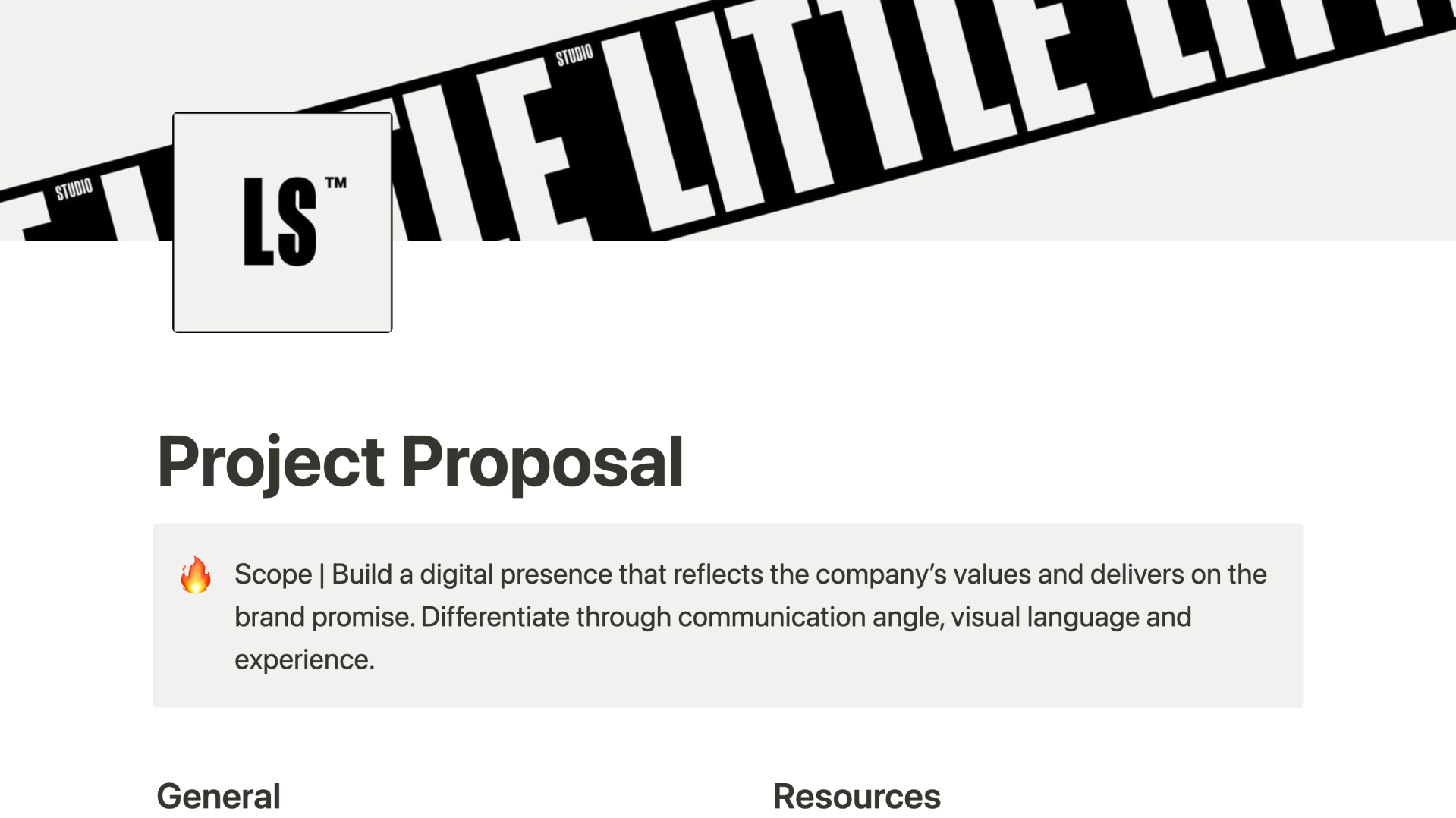
It helps you gather all the relevant content and can be easily sent to agencies, freelancers, and clients.
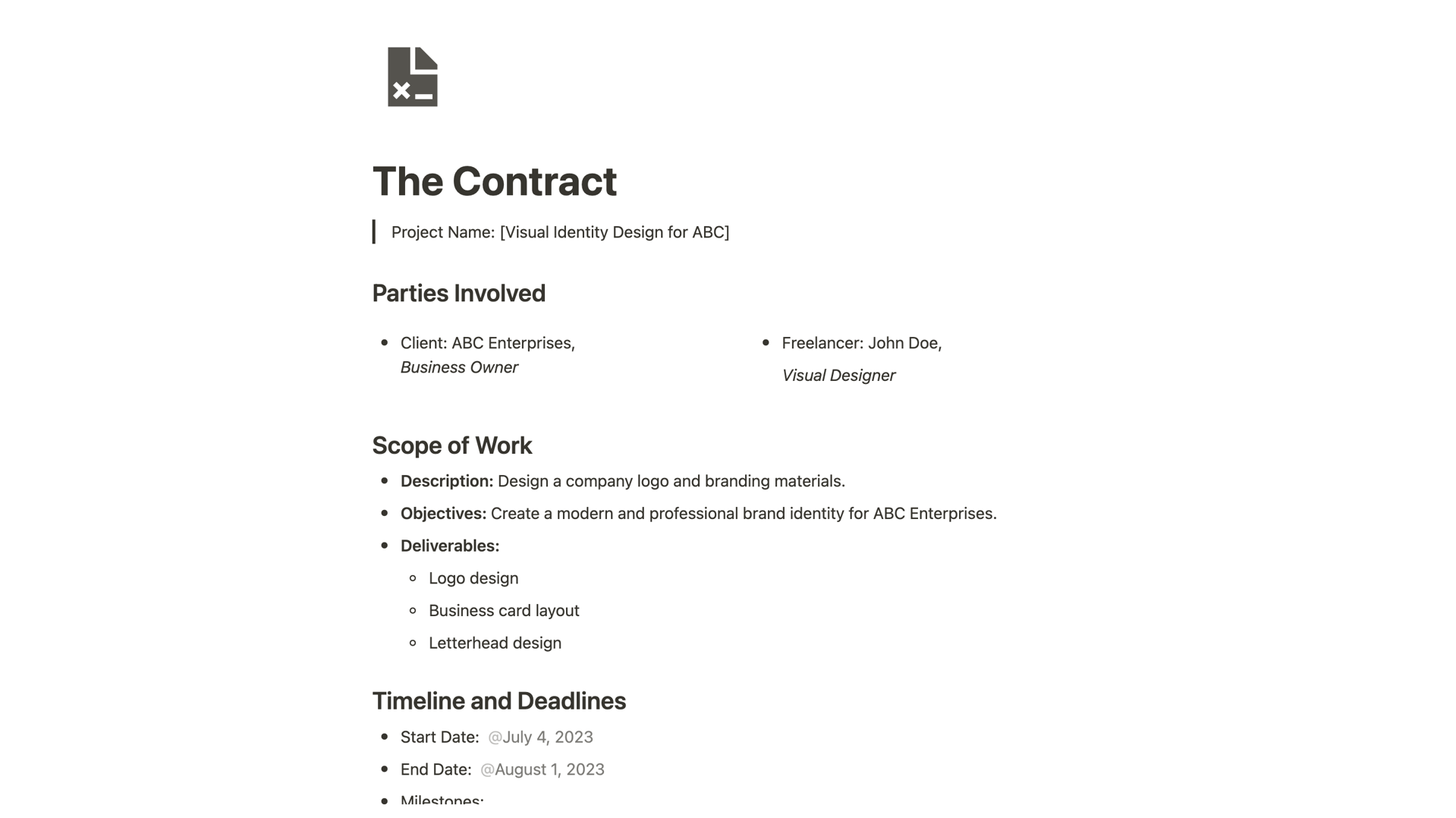
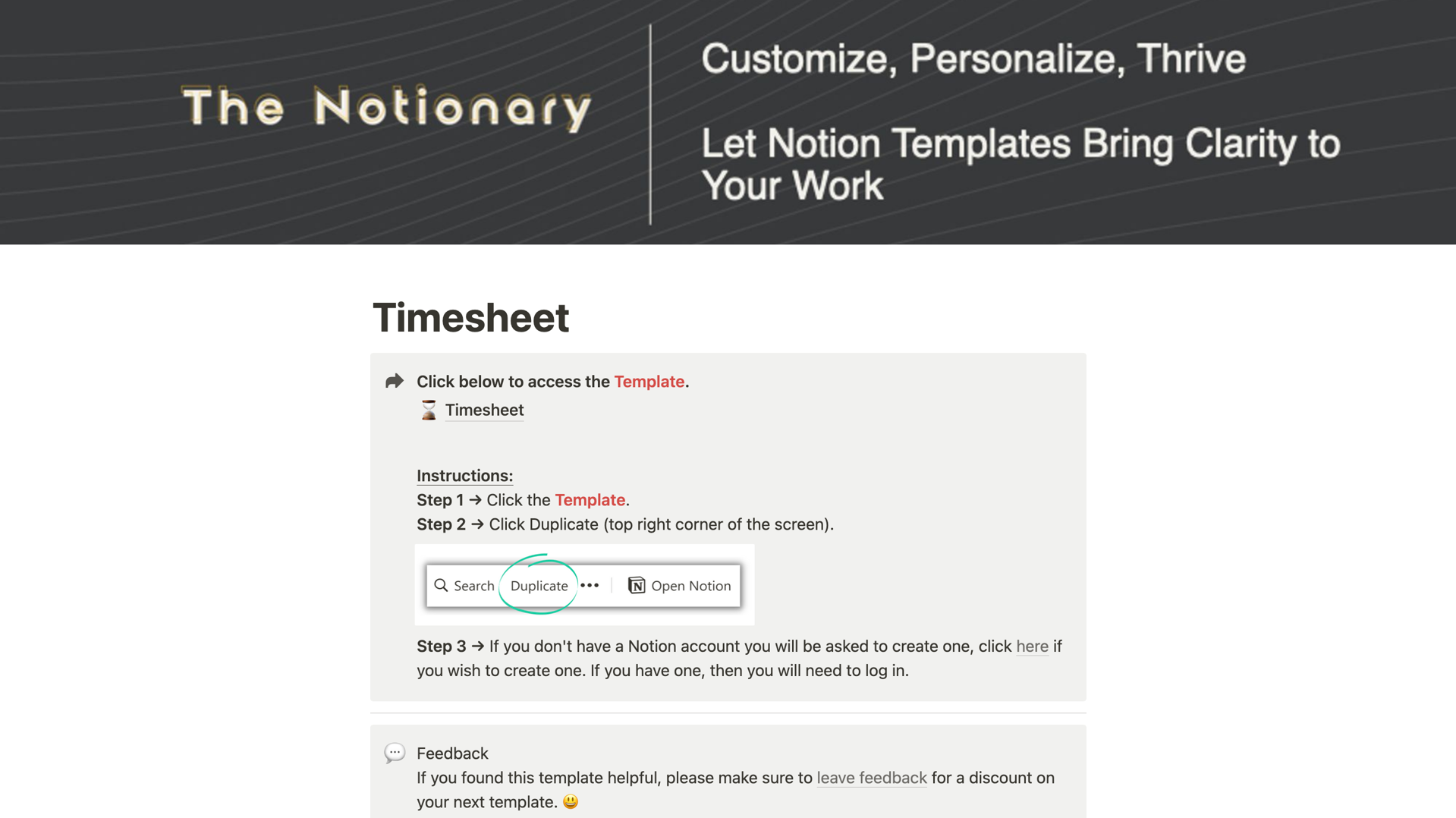
A daily or weekly overview of your time spent on different projects.
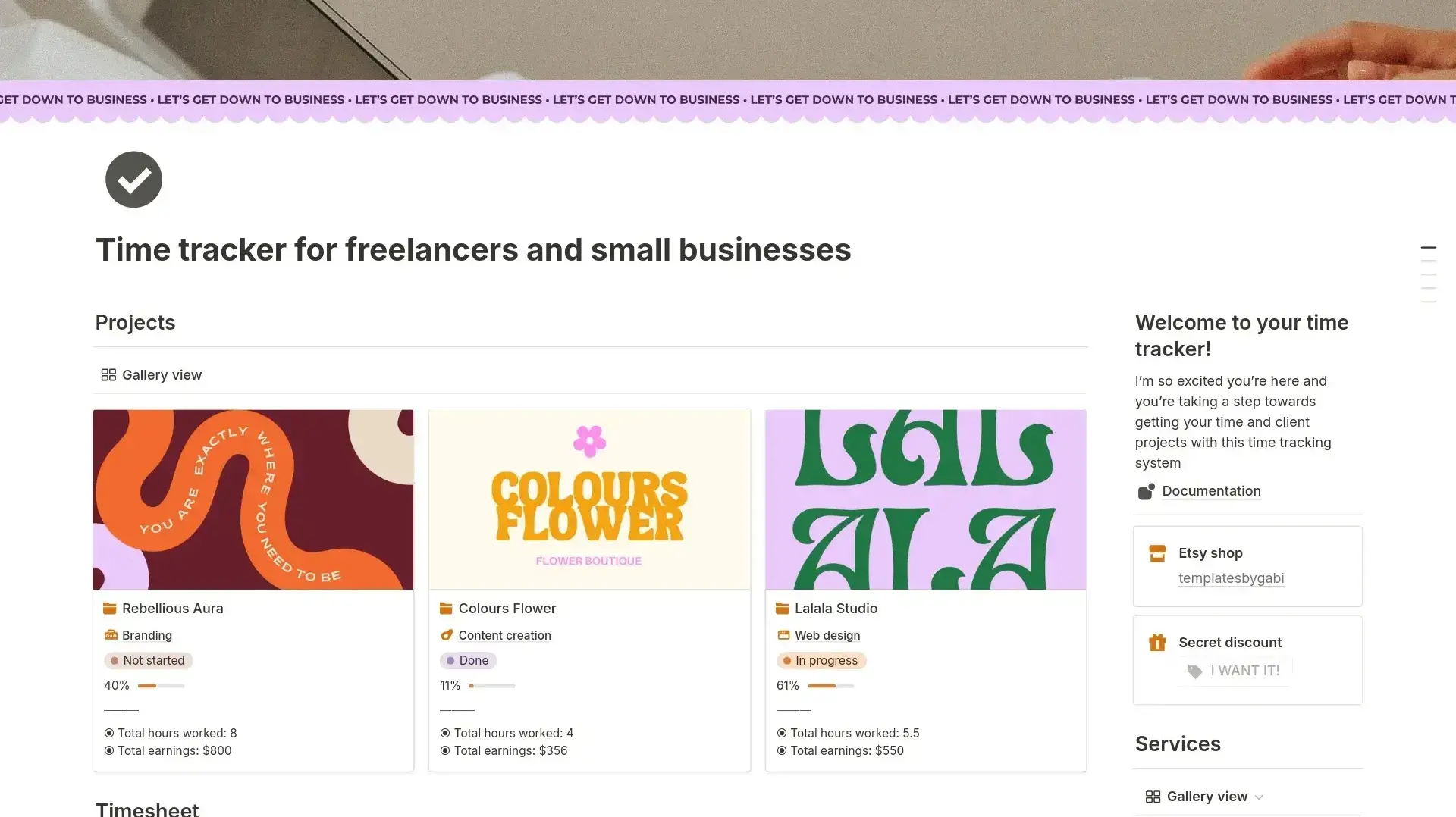
Automatically calculate earnings based on the hourly rates you set for each project. Track how much you’ve earned and compare it against your estimates.
Personal Branding
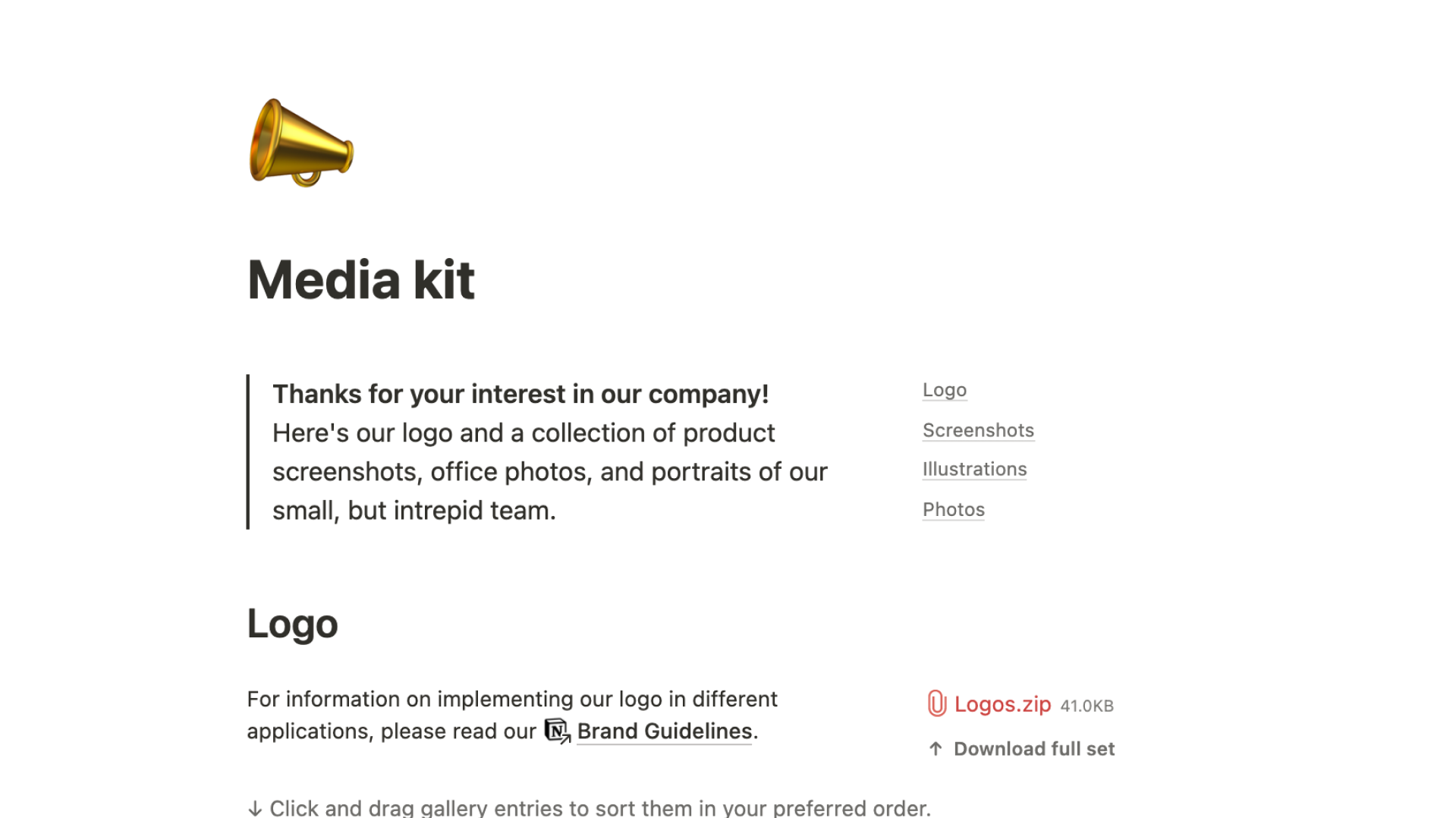
Use this template to showcase your logo, work, product screenshots, office photos, and team portraits.
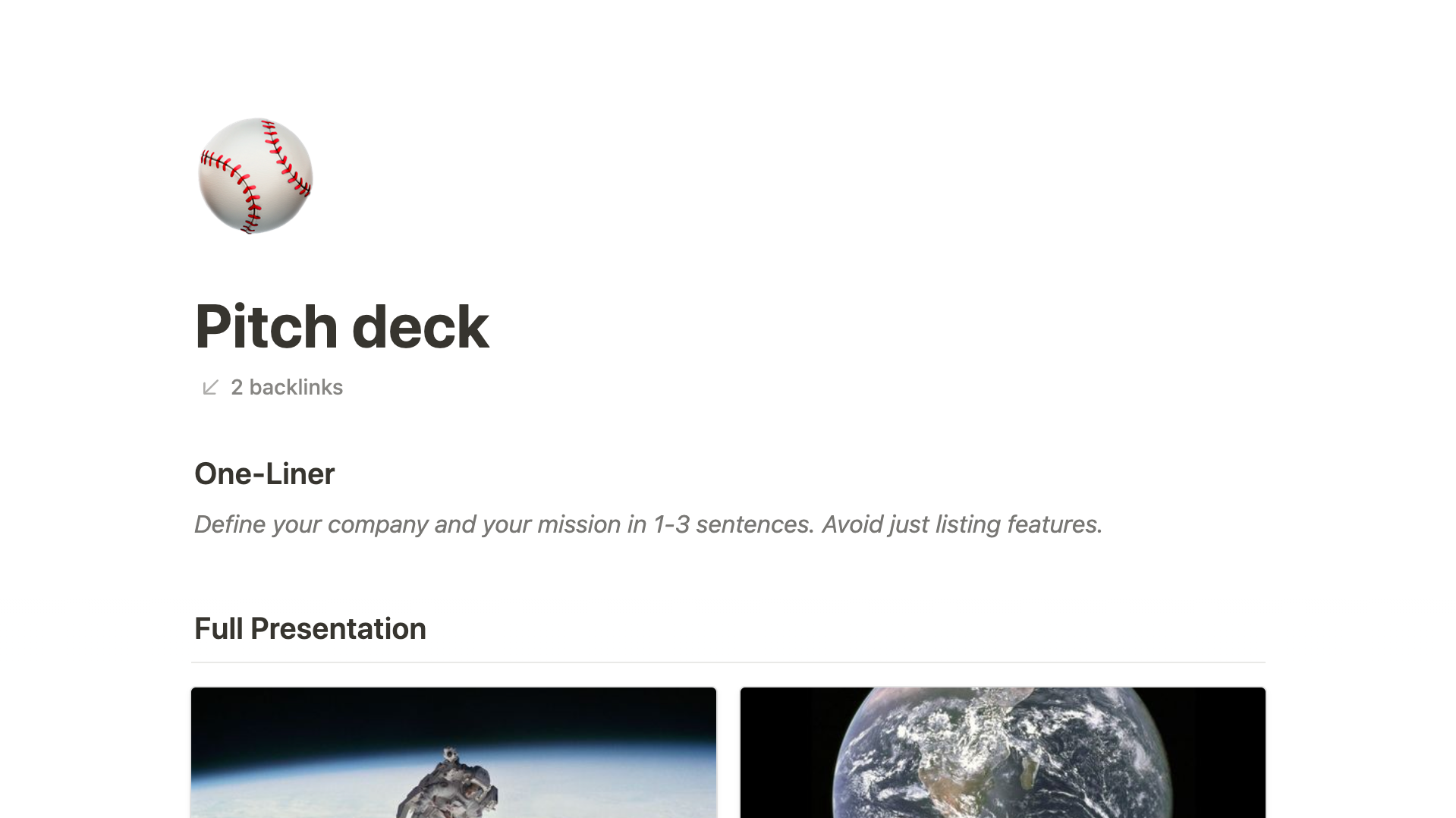

This template allows you to format your posts. You can include writing and images in many different configurations.
Additional Templates
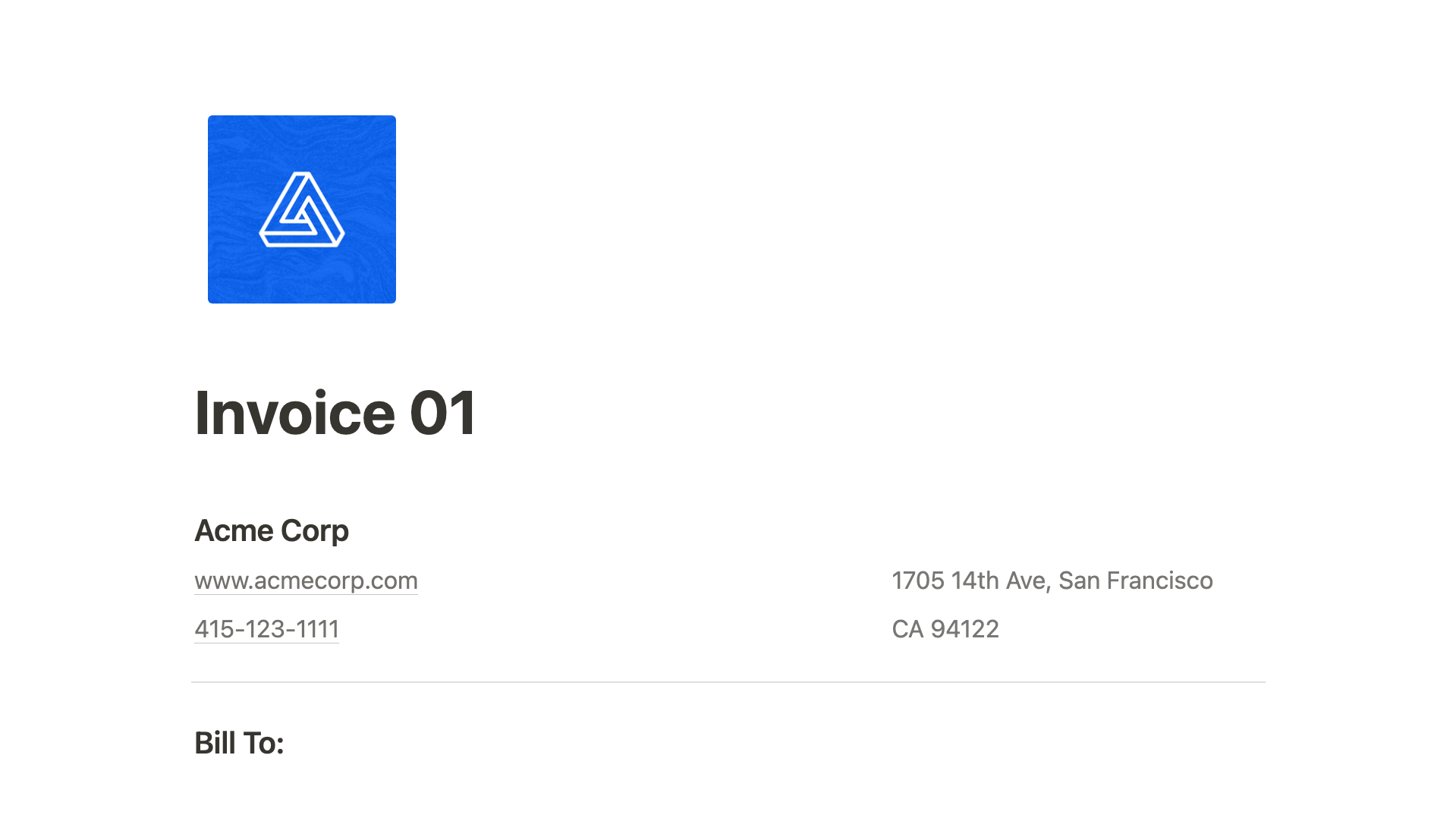
Use this template to streamline your invoice process and easily share your invoice with your clients.
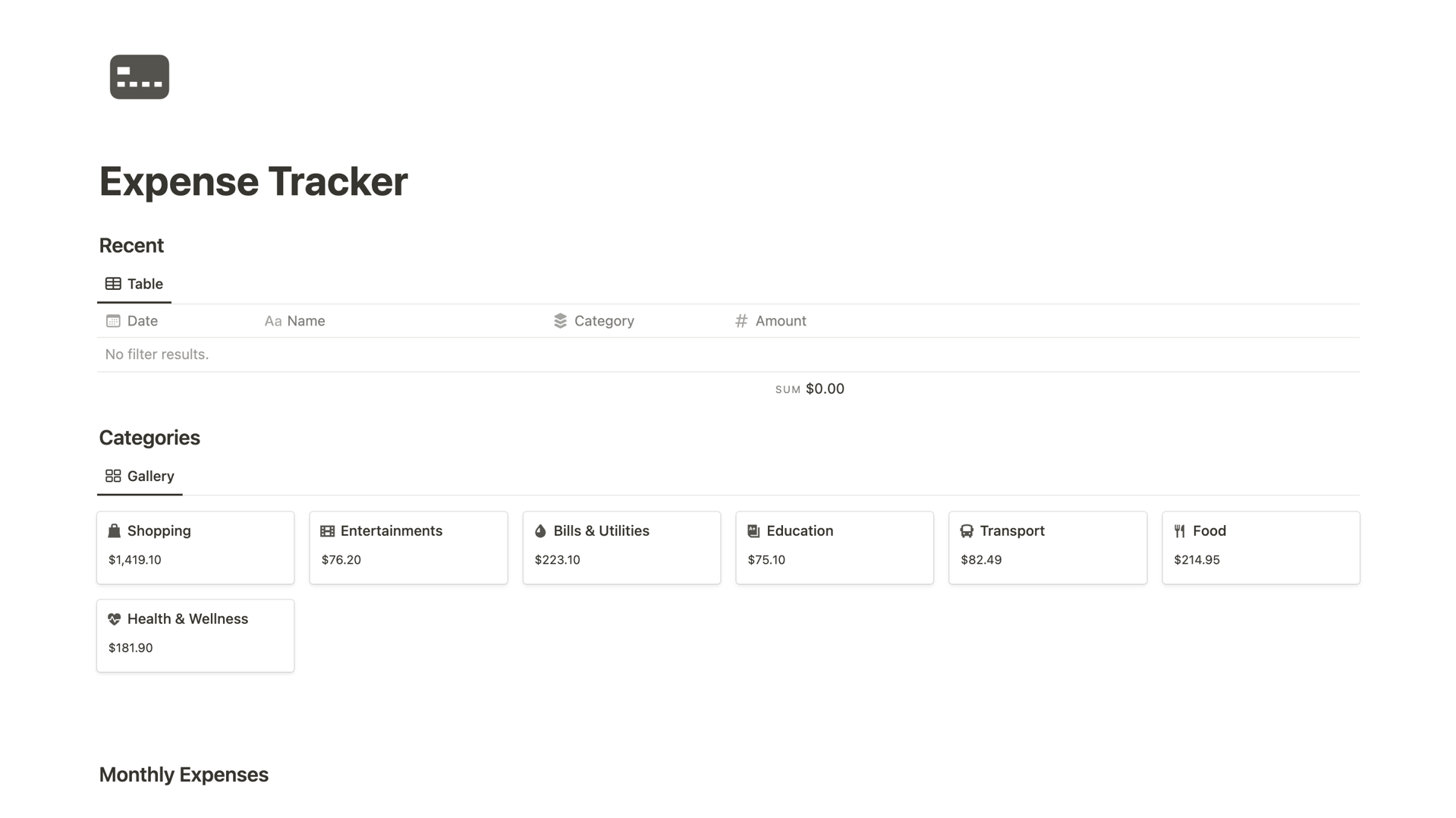
Using this tracker, you can log your daily expenses from anywhere, group expenses by custom categories, and view by recent, monthly, or yearly expenses
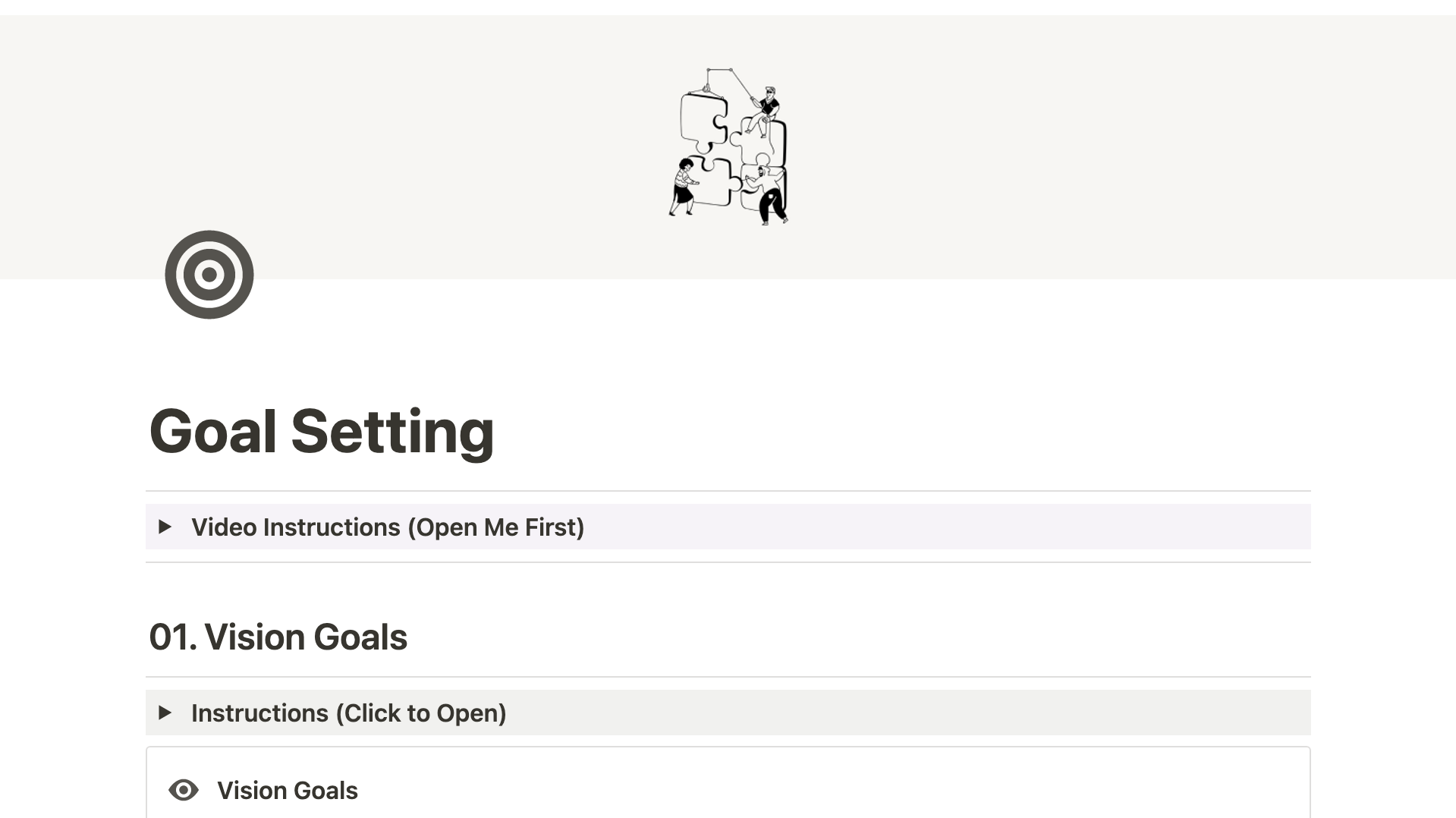
A template for setting and tracking your personal and professional goals. It ensures you are always working towards your big vision and annual goals.
Remember to customize these templates to fit your specific needs and preferences. You can add or remove columns, change colors, and modify the layout to create a workspace that works best for you.
Conclusion
By leveraging the power of Notion templates, freelancers can streamline their workflows, enhance their productivity, and improve their overall business performance. The templates discussed in this article offer a comprehensive solution for managing projects, clients, time, and personal branding.
Experiment with different templates, customize them to fit your specific needs and leverage the integration capabilities of Notion. By following these guidelines, you can create a personalized workspace that empowers you to succeed as a freelancer.
Frequently Asked Questions
Can I collaborate with other freelancers on projects?
Yes, collaboration can enhance your capabilities. Partnering with freelancers with complementary skills allows you to take on more extensive projects and offer a broader range of services.
How should I pitch my services and set my rates as a freelancer?
Craft personalized pitches highlighting how your skills align with a client's needs, communicate transparently about your process and set competitive rates based on industry research and the complexity of the project.
Can email marketing be a full-time job for freelancers?
Yes, email marketing can be a full-time job for freelancers, especially given the growing demand for digital marketing services. Freelancers can expand their offerings to include full-service email marketing strategies, campaign execution, and results analysis.

Audee Mirza is a graphic designer and WordPress developer at audeemirza.com who resides in Surabaya, Indonesia. She's also the author of Graphic Identity Blog, a professional logo designer, and often creates vector illustrations for clients and marketplaces. She enjoys good typography design and all kinds of animation.
View all posts by Audee Mirza




















